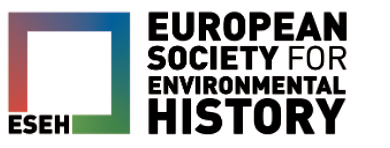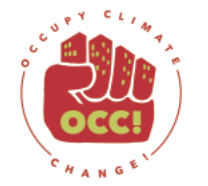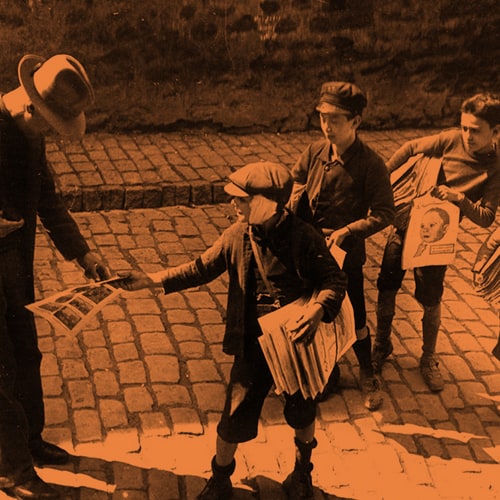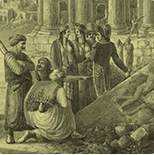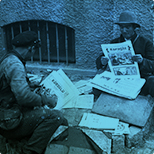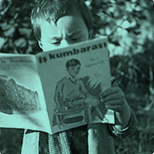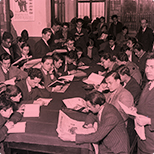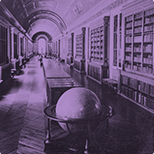Istanbul Unbound: Environmental Approaches to the City
Istanbul Research Institute and Pera Museum organize Istanbul Unbound: Environmental Approaches to the City, an international, virtual conference that seeks to offer new insights on the complex layers of Istanbul’s urban landscape, to be held on April 8–11, 2021. It brings together innovative studies in the fields of environmental history, political ecology, and critical art studies that utilize transdisciplinary methods and transcend predetermined scales and clearly delineated boundaries between the histories and stories of humans, nonhumans, and the built environment. Istanbul Unbound is organized in collaboration with Heinrich Böll Stiftung-Turkey, through partnerships with birbuçuk, IstanbuLab, and Occupy Climate Change!, Istanbul Planning Agency, and endorsed by the European Society for Environmental History and the Network for the Study of Environmental History of Turkey.
Keynote Lecture & Closing Remarks
Keynote and closing remarks speakers will soon be announced.
Conference Program
Istanbul Unbound: Environmental Approaches to the City
Virtual Conference | April 8-11, 2021
Organized by Istanbul Research Institute and Pera Museum
Sponsored by Heinrich Böll Stiftung-Turkey
Partners: birbuçuk, Occupy Climate Change!, IstanbuLab
Endorsed by: European Society for Environmental History and Network for the Study of Environmental History of Turkey
Day 1 / April 8
18:30 – 19:00 Welcome Remarks
- M. Özalp Birol (General Manager, Suna and Inan Kıraç Foundation Culture and Art Enterprises)
- Kristian Brakel (Country Director, Henrich Böll Stiftung Turkey)
- K. Mehmet Kentel (Research Projects Manager, Istanbul Research Institute)
19:00 – 20:30 Keynote Lecture
- Anna L. Tsing (University of California, Santa Cruz) – The Particular in the Planetary: Reimagining Cosmopolitanism Beyond the Human
Day 2 / April 9
9:45 – 11:15 Material Histories of the Present
Chair: Begüm Özkaynak (Boğaziçi University)
- Deniz Öztürk (Center for Spatial Justice) – Tracing the Excavation: A Study on Displaced Urban Land and Urbanization of Nature in Istanbul
- Elif Simge Fettahoğlu (Technische Universität München), İpek Akpınar (Izmir Institute of Technology), and Benedikt Boucsein (Technische Universität München) – Tracing Territories: A Cartographic Timeline of Northern Istanbul
- Eser Yağçı (Mimar Sinan Fine Arts University) and Fatma Zeynep Aygen (Fatih Sultan Mehmet University) – Concrete Attacking Istanbul’s Underground Layers: A Subterranean Climate Dystopia of Tarlabaşı
- Başak Aka (Kadir Has University), Gizem Güllü (Yıldız Teknik University) and İmge Yılmaz (Istanbul Technical University) – Golden Horn Revisited: A Utopian Stage in Istanbul
11:15 – 11:30 Coffee Break
11:30 – 13:15 Plenary Session – Climate and Spatial Justice in Istanbul (co-organized with Heinrich Böll Stiftung Turkey)
Chair: Menekşe Kızıldere (Heinrich Böll Stiftung Turkey)
- TBA from German Greens
- Till Sterzel (Adelphi)
- Ayşen Erdinçler (Istanbul Metropolitan Municipality)
- Yaşar Adnan Adanalı (Center for Spatial Justice)
13:15 – 14:15 Lunch Break & 29.9 km Video Programming by birbuçuk
- Rantİstanbul (Devrim CK, Alper Şen)
- Fikirtepe (Murat Germen, Murat Tülek, Haluk Diriker)
- “This is Not a Line”: A Cartography on Istanbul’s Coastline Ecotone (Gökçen Erkılıç, Ahmet Ünveren)
14:15 – 15:30 Explorations along the Peripheries of Contemporary Istanbul
Chair: Özlem Altınkaya (Delft University of Technology)
- Akgün İlhan (Istanbul Policy Center, Sabancı University) – “Political Ecology of Istanbul’s Two-Thousand-Year-Old Water Paradigm
- Sinan Logie (Istanbul Bilgi University) and Yoann Morvan (CNRS, Idemec-Université Aix-Marseille) – Bridging the Gap: Walking through the Unbound Fringes of Istanbul
- Duygun Ruben (Boğaziçi University) – Exploring the Impact of Megaprojects on the Homeowners and Tenants of Istanbul: The Case of Kayaşehir
15:30 – 15:45 Coffee Break
15:45 – 17:15 Plenary Session – Governing Istanbul: Scientists, Technologies, and Ecologies (co-organized with IstanbuLab)
Chair: Duygu Kaşdoğan (Izmir Kâtip Çelebi University)
Discussant: Mehmet Ekinci (Cornell University)
- Canan Çakırlar (University of Groningen) – The Emergence of Multispecies Istanbul: Bioarchaeological Data Can Rebrand Our Approach to Human-Nonhuman Interactions in the City
- Mine Yıldırım (New School) – Encounters along the Interstices of Infrastructure: Mass Dog Exiles and Changing Registers of State-Presence, Labor, Place-Making in Peri-Urban Istanbul
- Youenn Gourain (LATTS, University Paris-Est Marne-la-Vallée) – Risks in the City: From Mitigation to Recalcitrance? The Case of Istanbul
- Tim Schütz (University of California, Irvine) – Archiving for Quotidian Anthropocenes: From Los Angeles to Reserve, Louisiana and Istanbul
17:15 – 17:30 Coffee Break
17:30 – 18:45 Twentieth-Century Istanbul from Below and Above
Chair: Esra Akcan (Cornell University)
- Semih Gökatalay (University of California, San Diego) – The Role of Private Enterprises in Shaping the Environment and the Construction of Ports and Bridges in Interwar Istanbul
- Timur Hammond (Syracuse University) – Ruderal Stories: Urban Change, Vacant Property, and Trees of Heaven in Istanbul
- Asya Ece Uzmay (Cornell University) – The 1970 Cholera Epidemic in Sağmalcılar: Unveiling the Entangled Water Relations of Istanbul
Day 3 / April 10
11:30 – 12:45 Environments of Disease and Healing in Istanbul – I
Chair: K. Mehmet Kentel (Istanbul Research Institute)
- Brigitte Pitarakis (CNRS) – Sacred Topography in the Istanbul Suburbs: The Byzantine Tradition and Worship of the Health-Giving Virgin in Late Ottoman Istanbul
- Müge Telci Özbek (Istanbul Bilgi University) – The Sewers and Prostitution: Regulating the Human Body and Urban Environment in Late Ottoman Istanbul
- Can Gümüş (Boğaziçi University) – Rendering Infrastructures Visible: Death, Hygiene, and Social Inequalities in Late Ottoman Istanbul
12:45 – 13:45 Lunch Break & 29.9 km Video Programming by birbuçuk
- Calx Ruderalis Istanbulensis (Elif Kendir-Beraha, Aslıhan Demirtaş)
- Su Çizgisi (Aslı Uludağ, Kerem Ozan Bayraktar)
- Solastalgia and Ecological Grief in Beykoz (Deniz Gündoğan İbrişim, Aysim Türkmen, Serhan Erkol)
13:45 – 15:15 Environments of Disease and Healing in Istanbul – II
Chair: Fatih Artvinli (Acıbadem University)
- Gizem Kıygı (City Detective Initiative) – Public Space as a Matter of Life and Death: Cholera Outbreaks and Spaces of Public Health in Nineteenth-Century Beyoğlu
- Erik Blackthorne-O’Barr (Columbia University) – Journals of the Plague Year: The Ottoman Press and the Istanbul Cholera Outbreak of 1871
- Gabriel Doyle (CETOBaC-EHESS) – A Space of Emergency: Sirkeci as a Site of Transnational Relief during the Wars of 1877–78 and 1912–13
- Léa Delmaire (Sciences Po Paris) – Istanbul, Capital of TB?: Public Health, Construction, and Blurring of the Rural/Urban Divide in Mid-Twentieth-Century Turkey
15:15 – 15:30 Coffee Break
15:30 – 17:15 Attempting and Failing to Control the Nature in Pre- and Early Modern Istanbul
Chair: Cemal Kafadar (Harvard University)
- Fatma Sarıkaya Işık (Boğaziçi University) – Water in Making the City: The Imagery of Sustaining Constantinople
- Aleksandar Shopov (Max Planck Institute for the History of Science) – Istanbul’s Deluge of 1563
- Gül Kale (Carleton University) – Let the Sunshine in: Responses of Istanbul’s Early Modern Populace to Environmental Changes in Their Residences
- Fariba Zarinebaf (University of California, Riverside)– Plagues and the Urban Transformation of Istanbul in the Early Modern Period
17:15 – 17:30 Coffee Break
17:30 – 19:15 Special Movie Screening: Natura Urbana and Q&A with the director Matthew Gandy (University of Cambridge)
Day 4 / April 11
11:45 – 13:00 Histories of Human-Animal Relations in Istanbul
Chair: Onur İnal (Vienna University)
- M. Emir Küçük (Boğaziçi University) – Urban Pollution in Late Ottoman Istanbul: The Case of Horse-Drawn Tramways
- Zeynep Yeşim Gökçe (University of Bonn) – A Brief History of Mutual Dependence: Stray Cats and Streets of Istanbul in 1930s
- Irmak Ertör (Boğaziçi University) – Fish and Fisher People as Part of Istanbul’s Past and Present Panorama
13:00 – 14:00 Lunch Break & 29.9 km Video Programming by birbuçuk
- Istanbul of Fish (Özden Demir, Mert H. Atalay)
- Akışa Karşı, Akıntıyla Beraber (Hilal Şenel, Bahar Topçu)
- Compassion (Halil Yetiş)
- Spaces of Misanthropy (Alen Mevlat, Ali Cindoruk, Aslıhan Demirtaş, Itri Levent Erkol, Aylin Kanar, Rumeysa Tıpırdamaz)
14:00 – 15:30 Plenary Session – Politics of Urban Climate Justice in Istanbul: Then and Now (co-organized with Occupy Climate Change!)
Chair: Cem Aydın İskender (Boğaziçi University)
- Elvan Arik (LATTS, Gustave Eiffel University) – From Coal to “Natural Gas Civilization”: Politics of Infrastructural Modernization and (False) Promises of Heating Transition in Istanbul
- Helin Karaman (EHESS, IFEA) – Urban vs. Suburban Nature in Contemporary Istanbul: Public Parks as a Tool to Urbanize the Fringes
- Ayşegül Boyalı (Yıldız Technical University) – The Historical Geography of Validebağ Grove and the Struggle over Public Space
- Ethemcan Turhan (University of Groningen) and Baran Alp Uncu (Independent Researcher) – Lost and Found? Reclaiming the Climate Just City in Istanbul
15:30 – 15:45 Coffee Break
15:45 – 17:15 (Former) Spaces of Food Production and Waste
Chair: Aleksandar Shopov (Max Planck Institute for the History of Science)
- Ayşe Nur Akdal (Boğaziçi University) – Something Missing in Istanbul? Modernization and De-agrarianization of the City during the Late Nineteenth and Early Twentieth Centuries
- Ayşe Ozil (Sabancı University) – Fields into Houses: The Making of a New Urban Landscape in Tatavla and Tarlabaşı in Late Ottoman Istanbul
- Isaac Hand (New York University) – Melon Rinds and Mecidiyeköy Flies: Trash Collection and Urban Responsibility, 1900-1950
- Abdullah İnanç Kıran (Historical Yedikule Bostans Protection Initiative) and Tracy Lord (Piyalepaşa Bostan Volunteer) – Evaluation of the Historical Bostans of Istanbul in the Context of Green Infrastructure and Multi-Functionality
17:15 – 17:30 Coffee break
17:30 – 18:30 Closing Remarks
- Cemal Kafadar (Harvard University)
** Poster presentations will be available via the conference platform.
- Orsolya Barna (Eötvös Loránd University) – Free-Ranging Dogs as Hiking Companions |
- Yasemin Küblü (Landscape architect) – A Multi-Layered Approach to the Urban Topography of a Harbor Settlement: Galata, Istanbul
- Peyman Eshaghi (Free University of Berlin) - ‘The Exotic Ottoman City”: The Environment of Istanbul Narrated by Iranian Passengers (1796–1923)
Technical Information
Organization committee is doing its best to provide the presenters and attendees the most secure and participatory virtual conference experience. Details will soon be posted.
Call for Papers
Registration
Registration form will soon be available.
Keynote Lecture & Closing Remarks
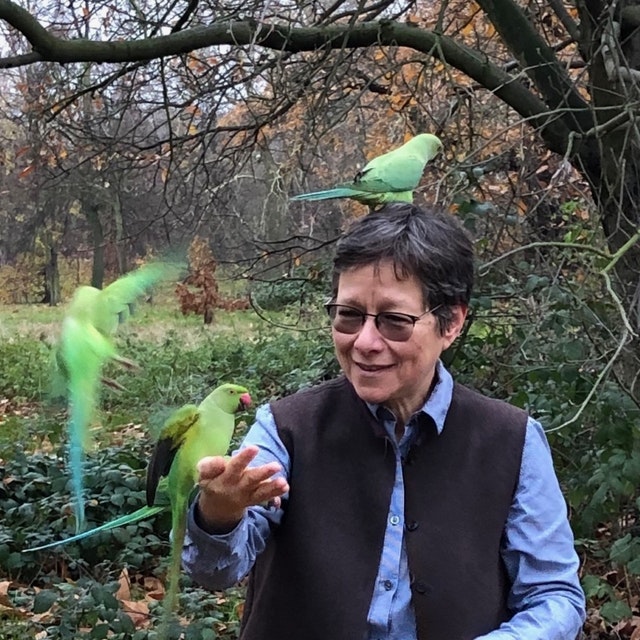 Keynote Lecture: Anna L. Tsing
Keynote Lecture: Anna L. Tsing
Anna Lowenhaupt Tsing is the Distinguished Professor of Anthropology at University of California, Santa Cruz. Professor Tsing is a theorist of globalization, environment, and transnational interconnection. Her books include The Mushroom at the End of the World: On the Possibility of Life in Capitalist Ruins (Princeton University Press, 2015), Friction: An Ethnography of Global Connection (Princeton University Press, 2005), and In the Realm of the Diamond Queen (Princeton University Press, 1994). Her most recent work is a co-edited digital project, Feral Atlas: The More-Than-Human Anthropocene, which offers an original and playful approach to studying the Anthropocene. Her other co-edited works include Arts of Living on a Damaged Planet: Ghosts and Monsters of the Anthropocene (University of Minnesota Press, 2017), Words in Motion (Duke University Press, 2009), Nature in the Global South: Environmental Projects in South and Southeast Asia (Duke University Press, 2003), Shock and Awe: War on Words (New Pacific Press, 2004), Communities and Conservation (AltaMira Press, 2005), and Uncertain Terms: Negotiating Gender in American Culture (Beacon Press, 1992).
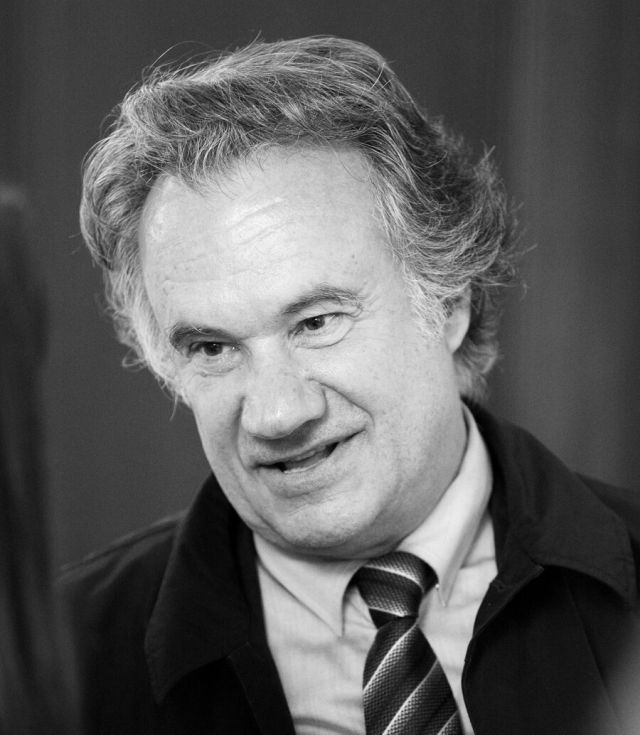 Closing Remarks: Cemal Kafadar
Closing Remarks: Cemal Kafadar
Cemal Kafadar is the Vehbi Koç Professor of Turkish Studies at Harvard University’s Department of History. Professor Kafadar is interested in the social and cultural history of the Middle East and southeastern Europe in the late medieval/early modern era. His books include Kendine Ait Bir Roma: Diyar-ı Rum’da Kültürel Coğrafya ve Kimlik Üzerine (Metis, 2017), Kim Var İmiş Biz Burada Yoğ İken: Dört Osmanlı: Yeniçeri, Tüccar, Derviş ve Hatun (Metis, 2009), Between Two Worlds: The Construction of the Ottoman State (UC Press, 1995). His most recent publication is a co-edited multivolume, Treasures of Knowledge: An Inventory of the Ottoman Palace Library (1502/3-1503/4) (Brill, 2019), which includes his essay on Bayezid II, Amasya, and the palace library. Another volume he is co-editing on Istanbul’s nature is forthcoming in 2021. He worked closely on the conception and production of two historical documentaries: Inspirations (dir. Nurdan Arca, 2005) on Sheikh Bedreddin, an Ottoman intellectual executed for his ideas ca. 1417; Invisible to the Eye (dir. Zeynep Dadak, 2020) on the mid-17th century account of Istanbul by Eremya Çelebi Kömürciyan.
Conference Program
The conference program is available here.
Technical Information
The organizing committee of the Istanbul Unbound: Environmental Approaches to the City conference has done its best to provide its presenters and attendees the most secure and interactive virtual conference experience. Eventually, we decided on Crowdcast and Discord.
To make an analogy of an in-person conference, Crowdcast is our stage. It is where all the talks, from keynote to the closing remarks, will take place. It is also where the Natura Urbana movie and birbuçuk works will be screened. Conference registration is also done through Crowdcast. Please follow the link to register on Crowdcast and for Istanbul Unbound. You do not need to download or pay anything to use Crowdcast.
Discord will be analogous to our conference lounge. It is where participants and audience members can mingle, discuss, and network. Several publishing houses host virtual book fairs that you will be able to browse during the conference as well. Istanbul Unbound has an invite-only Discord channel. After you register for the conference via the Crowdcast link above, you will be able to join the Discord server.
You do not need to pay anything to use Discord, however, we recommend downloading the app for the highest-quality experience.
Both Crowdcast and Discord are accessible on your mobile devices.
Both Crowdcast and Discord are very easy to use (yes, easier than Zoom!), but, just to be sure, please browse through our guidelines and troubleshooting manual to ensure a smooth conference experience.
If you have any questions before or during the conference, you can find the conference team on Discord, you can also write to istanbul.unbound@iae.org.tr.
Call for Papers
Registration
Registration is required to attend the Istanbul Unbound: Environmental Approaches to the City conference. Please click here to register.
Special Film Screening and Q&A
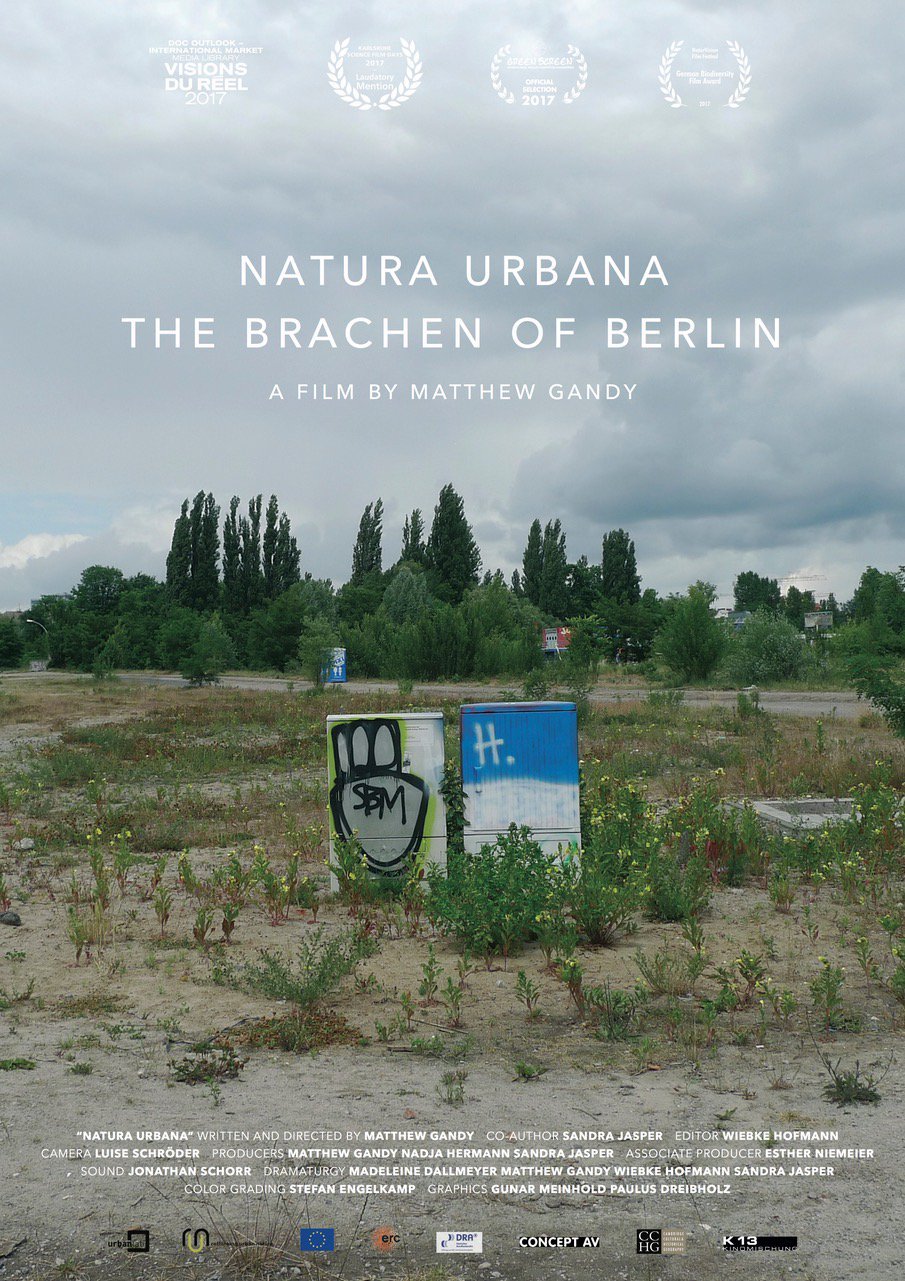 In collaboration with Pera Film, Istanbul Unbound will feature a screening of Natura Urbana | The Brachen of Berlin, accompanied by a special Question and Answer session with Matthew Gandy, the director.
In collaboration with Pera Film, Istanbul Unbound will feature a screening of Natura Urbana | The Brachen of Berlin, accompanied by a special Question and Answer session with Matthew Gandy, the director.
Date: April 10, 2021 / 17:30 – 19:15
NATURA URBANA | THE BRACHEN OF BERLIN
Director: Matthew Gandy
United Kingdom / Germany, 2017, 72’, color
Natura Urbana tells the post-war history of Berlin through its plants. The film takes us from the Trümmerlandschaften and their unique ecologies to the abandoned roofs of the Friedrichshagen Waterworks on the edge of the city. Encountering an extraordinary variety of spontaneous vegetation from all over the world that has sprouted along railway lines, street corners, and in the distinctive Brachen of Berlin.
In Natura Urbana the changing vegetation of Berlin serves as a parallel history to war-time destruction, geo-political division, and the newest phase of urban transformation. Natura Urbana takes us on a unique journey through Berlin ranging from the botanical microcosm of cracked paving stones to elaborate attempts to map the entire city in terms of its distinctive ecological zones.
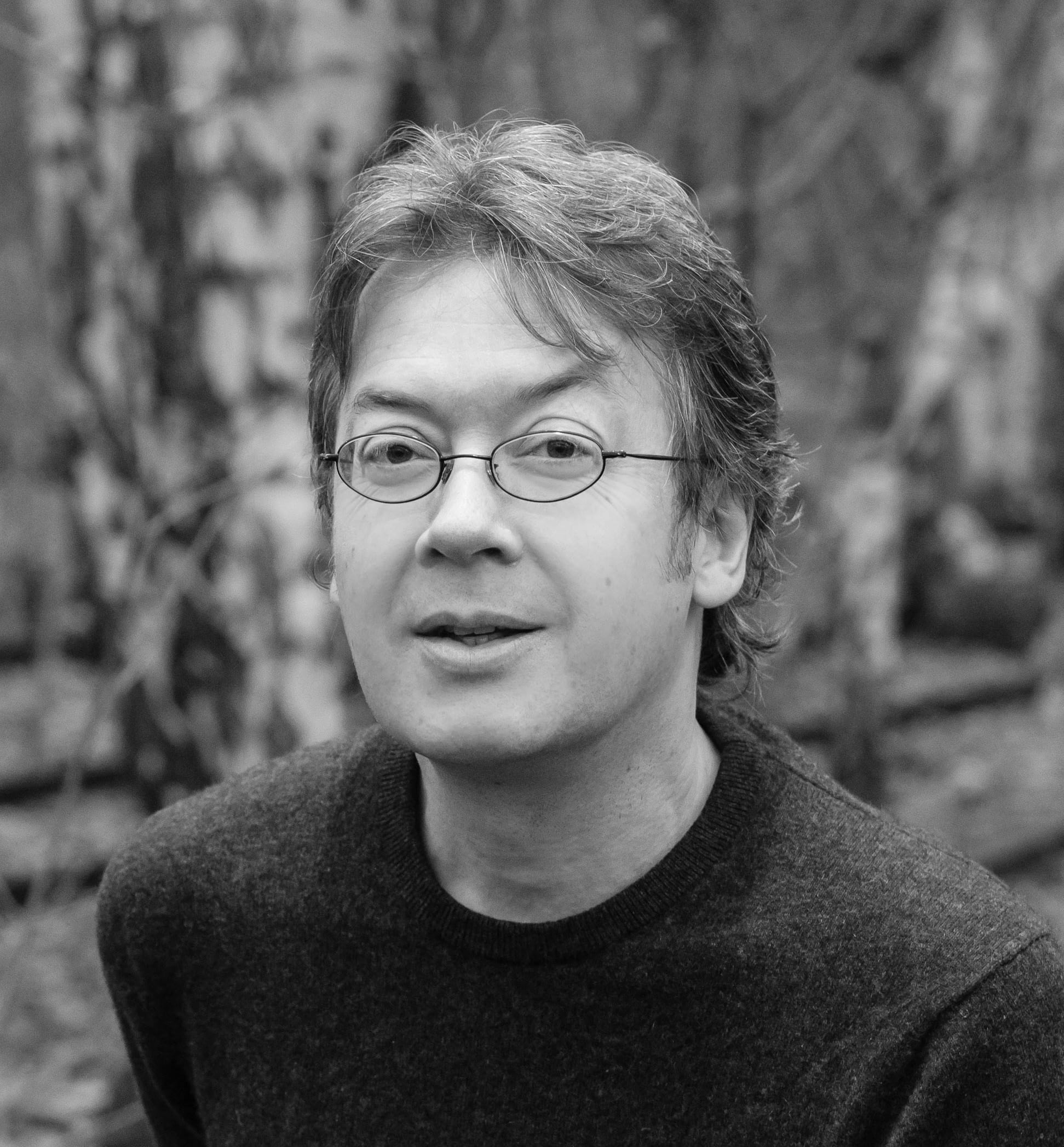 Matthew Gandy
Matthew Gandy
Matthew Gandy is a geographer, urban field ecologist, and award-winning documentary filmmaker. He is Professor of Geography and Fellow of King’s College at the University of Cambridge. He previously taught at University College London, where he was the founder and director of the UCL Urban Laboratory from 2005 to 2011. Matthew Gandy has published extensively on urban natures, infrastructures, spaces of disease and queer geographies. His monographs include Recycling and the Politics of Urban Waste (Earthscan, 1994), Concrete and Clay: Reworking Nature in New York City (MIT, 2002), The Fabric of Space: Water, Modernity, and the Urban Imagination (MIT, 2014), Nature, sexualité, et hétéropie (Eterotopia, 2015), Moth (Reaktion Books, 2016); and among his edited volumes are The Return of the White Plague: Global Poverty and the 'New' Tuberculosis (Verso, 2003), Urban Constellations (Jovis Verlag, 2011), The Acoustic City (Jovis Verlag, 2014) and The Botanical City (Jovis Verlag, 2020).




